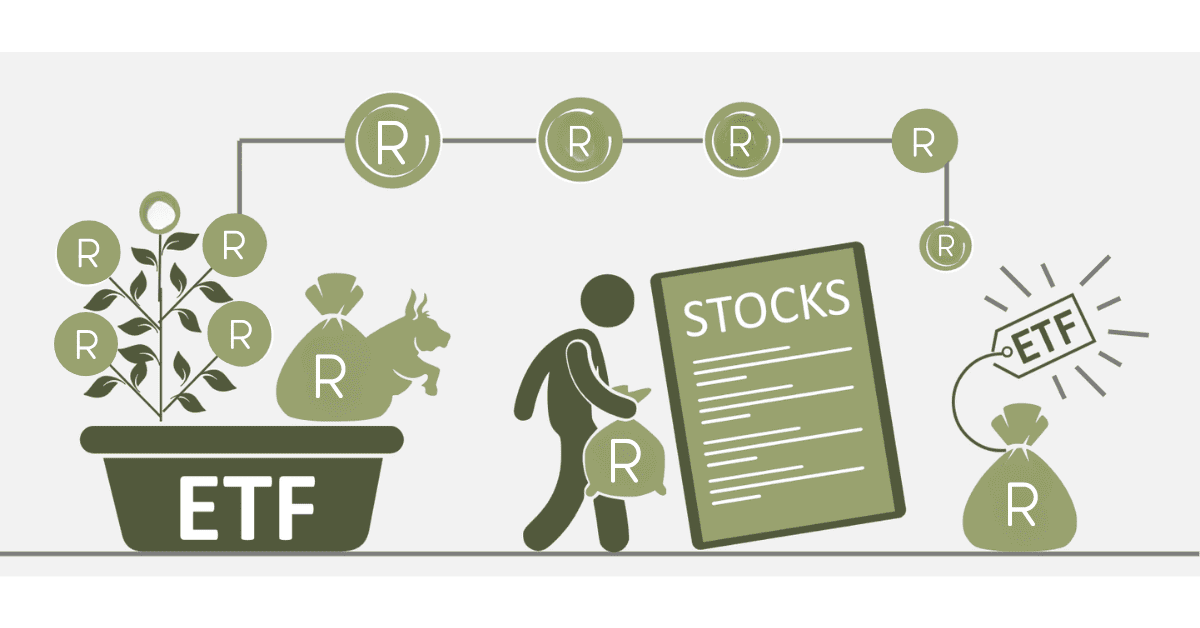Tencent Holdings is a diversified technology investment group highly exposed to gaming, social media, and entertainment. This makes it an alluring opportunity as South African investors seek diversification into international markets. The need for considerable portfolio diversification is one of the significant advantages of investing in Tencent- conditions under which one could be through direct access here in South Africa. The following are steps on investing in the shares
How To Buy Tencent Shares In South Africa
Buying Tencent’s shares in South Africa requires access to the international markets since the company is listed on the Hong Kong Stock Exchange-HKEX under the ticker symbol (0700. HK) – a platform through which South African investors can take such shares. Another possible option for exposure is indirect investment in Tencent via Naspers and its subsidiary, Prosus, listed on JSE- a substantial shareholder in Tencent.
If an individual wants to be directly invested in Tencent, they must select an international brokerage platform through which they can trade on HKEX. These include Interactive Brokers, Saxo Bank, and EasyEquities Global, which allow South Africans to invest in the shares of Tencent. Consider transaction fees, exchange rates, and user experience when selecting a trading platform.
After choosing a platform, you must open an account with identification documents and proof of residence. Sometimes, you might need a Tax Clearance Certificate for foreign investment. In any case, the South African Reserve Bank does allow residents to invest up to R11 million per calendar year in foreign assets, provided it is in conformance with the exchange control regulations.
Once opened, the account would need to be funded in South African rand and, as such, exchanged for the foreign currency required, which, in this case, would be the Hong Kong dollar or HKD. You could look up Tencent with its ticker and make a trade. You may want to place a market order. This will grant you immediate possession of the stock. You can also use a limit order to specify a purchasing price.
Is Tencent Holdings a Perfect Stock to Purchase?
The group has become one of the most vital tech firms in the world. These include a wide array of businesses that feature the world’s largest messaging app, WeChat, and its rapidly expanding gaming business with stakes in such hot titles as Fortnite and League of Legends. Innovation and expansion come at a frenetic pace at Tencent, which makes the company an intriguing long-term investment opportunity.
One of the major attractions of Tencent as an investment is its solid financial performance. The company has proved tricky in the regulatory challenge of China, posting continued revenue growth. Besides, its investments in AI, cloud computing, and financial services place it for further development in the coming years, significantly when such sectors grow.
All the same, Tencent’s performance is not deprived of risks. The dependence on the domestic market in China exposes businesses to changes in regulation, which can drastically affect operational and share price changes. For example, the latest pressures exerted on the regulation of the technology industry in China keep the activities of Tencent under scrutiny, hence affecting investor confidence in the company. On the contrary, geopolitical tensions shape market sentiments, given the sensitivity of the economic setting the company operates within.
For South African investors, underlying economically exposed local stocks make the stock a great diversifier away from commodity-market-at-the-mercy stocks. Despite the recent challenges, Tencent is still fertile ground for anyone with a long-term investment horizon since the steam of diversified revenue streams and continued innovation keeps churning.
Does Tencent belong to SA?
Although Tencent is Chinese, SA is still critical in its ownership through Naspers, one of the largest shareholders in the firm. In 2001, Naspers bought 46.5 percent of the group for $32M – the deal that would later be regarded as one of the best tech ventures ever. Naspers’ stake in the group has yielded considerable returns over the years. As a result, this has turned the company into a robust global investment powerhouse.
In its quest to simplify its operations and unlock value for stockholders, Naspers transferred the group’s stake to its subsidiary, Prosus, in 2019. Today, Prosus holds roughly 28.9% of the group’s stocks. As a result, it’s among the largest shareholders in Tencent. Both Naspers & Prosus are listed on the JSE. Hence, these provide South African capitalists with indirect exposure to Tencent.
This ownership structure has proved very rewarding for South African investors. By assisting the increased valuation of Tencent, market capitalization for both Naspers and Prosus has increased, strengthening the JSE’s performance. At the same time, this heavy reliance on the success of Tencent also entails risks because any negativity in Tencent’s books will also reflect in the share prices of the South African firms Naspers and Prosus.
Why Is Tencent Stock So Cheap?
In theory, this undervaluation of the Tencent stock does not make much sense, as it has seesawed wildly over the past few years. The reasons have been generally related to regulatory and geopolitical challenges and are manifold.
One of the primary reasons for this somewhat depressed Tencent stock price is increased regulatory scrutiny in China. The government has strict regulations targeting data privacy, anti-competitive behavior, and gaming addiction. Such moves have battered the operations of Tencent and its revenue growth, which has seen the stock price fall from previous highs.
Another factor is the sentiment of international markets. With the persistent geopolitical tension between China and other major economies, investor sentiment became weaker in companies like Tencent. Haggling over restrictive trade policies and foreign investment issues has also squeezed Tencent’s valuation.
Final Thoughts
The Tencent stock would allow South African investors to diversify and get exposure to the thriving Chinese technology market. Whether through direct investment via international platforms or indirectly through Naspers and Prosus, Tencent is not the worst option for any investor looking toward gains in long-term growth. While regulatory and geopolitical risks are not to be taken lightly, innovation and market leadership give Tencent a satisfactory standing for some momentum in the future. As always, all potential investors should do their homework and consult with financial advisors to ensure that an investment in this company aligns with their financial goals and risk tolerance.
![What are ETF [Exchange-Traded Funds]?](https://www.searche.co.za/wp-content/uploads/etf.webp)













![Internal Rate of Return [IRR] – Calculation](https://www.searche.co.za/wp-content/uploads/internal-rate-of-return.webp)